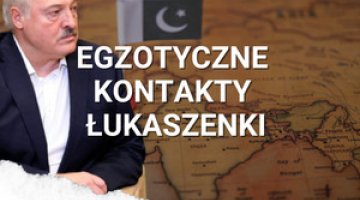The EU: striking at Lukashenka’s base
On 21 June, the Council of the European Union extended the list of sanctions against Belarus for the fourth time since last year’s rigged presidential elections. The immediate impulse for this latest move was the regime forcing a Ryanair plane carrying the opposition activist Raman Pratasievich to land in Minsk at the end of May, although the principal justification was the mass violations of human rights in Belarus which have been observed for several months. 78 people were subjected to personal sanctions, including Alyaksandr Lukashenka’s son Dzmitry, his daughter-in-law Lilia, the president's spokeswoman Natalia Ejsmant, as well as law enforcement officials, prosecutors and judges who have handed out severe sentences against opponents of the regime, as well as the officials directly responsible for forcing the plane to land. Others covered by the restrictions include businessmen from Lukashenka's closest circle: Alyaksandr Zajtsau, Alaksiej Aleksin, and the Russian oligarch Mikhail Gutseriev, who trades on the market for fuel supplies to Belarus. The list also includes the Belaeronavigatsia company (which is responsible for the supervision of civilian flights over the country) and seven business entities, including five operating under license from and with the protection of the regime, who constitute Lukashenka’s financial base. At present, there are a total of 166 natural and 15 legal persons on the EU’s sanctions lists.
At a press conference on 21 June Josep Borrell, the EU High Representative for Foreign Affairs and Security Policy, announced that a further package of sanctions to cover selected sectors of the Belarusian economy was being agreed upon. On the same day, Canada, the United Kingdom and the US introduced their own restrictions, but their lists are shorter, including only some of the people and entities now subject to EU sanctions. For example, the US Treasury Department expanded the US sanctions list to include 16 people and five institutions responsible for repression (including the KGB and the Interior Ministry), while London and Ottawa, in addition to regime officials and businessmen, also included economic entities.
Commentary
- The fourth package of sanctions is the EU’s strongest blow against the Minsk regime in the history of EU-Belarusian relations. However, the extension of the restrictions will have a limited effect on the economic condition of Belarus, as it is, above all, a precise and severe blow to the immediate surroundings of Lukashenka himself. The sanctions’ main goal is to minimise the income generated by those oligarchs who have the closest links to him. Restricted companies such as Bremino Group, Globalcustom and Logex deal with the sale and transit of goods from China to the European Union and from the EU to Russia, and enjoy tax breaks on Belarusian territory. There are many indications that the people who head them (such as Zajtsau and Aleksin), as well as those who were already subject to sanctions (the entrepreneurs Mikalai Varabiey and Alyaksandr Shakutsin, and the éminence grise Viktar Sheiman, the former head of the Presidential Affairs Board), have all been piling up money in order to increase the personal assets of Lukashenka and his family. In turn, the inclusion on the sanctions list of enterprises such as the Minsk Automobile Plant (MAZ), BelAZ and Sohra will do little to harm their interests; their production mostly targets the markets of Russia and countries in the Middle East and Africa. It is also possible that the companies covered by them will rebrand and appear on the market as new entities, seemingly independent of the regime, in order to circumvent the restrictions.
- The way in which the announcement of the sanctions lists by the European Union, the USA, Canada and the United Kingdom was coordinated sends an important political signal (it is also possible that Ukraine will join the EU restrictions). It is an expression of the West’s growing disapproval of the Minsk regime’s brutalisation, something which has also been manifested in the ongoing arrangements to introduce further sectoral sanctions. These may have a real impact on the financial industry and bring about an embargo on more Belarusian imports to the EU, such as potassium fertilisers, and perhaps some petroleum products. Their implementation would cause very large losses to the Belarusian budget, and this would force the regime to look for recipients of these goods in Russia or countries outside Europe; such a step would seriously hamper Lukashenka’s maintenance of the ‘militia state’ model he is currently implementing in Belarus.





